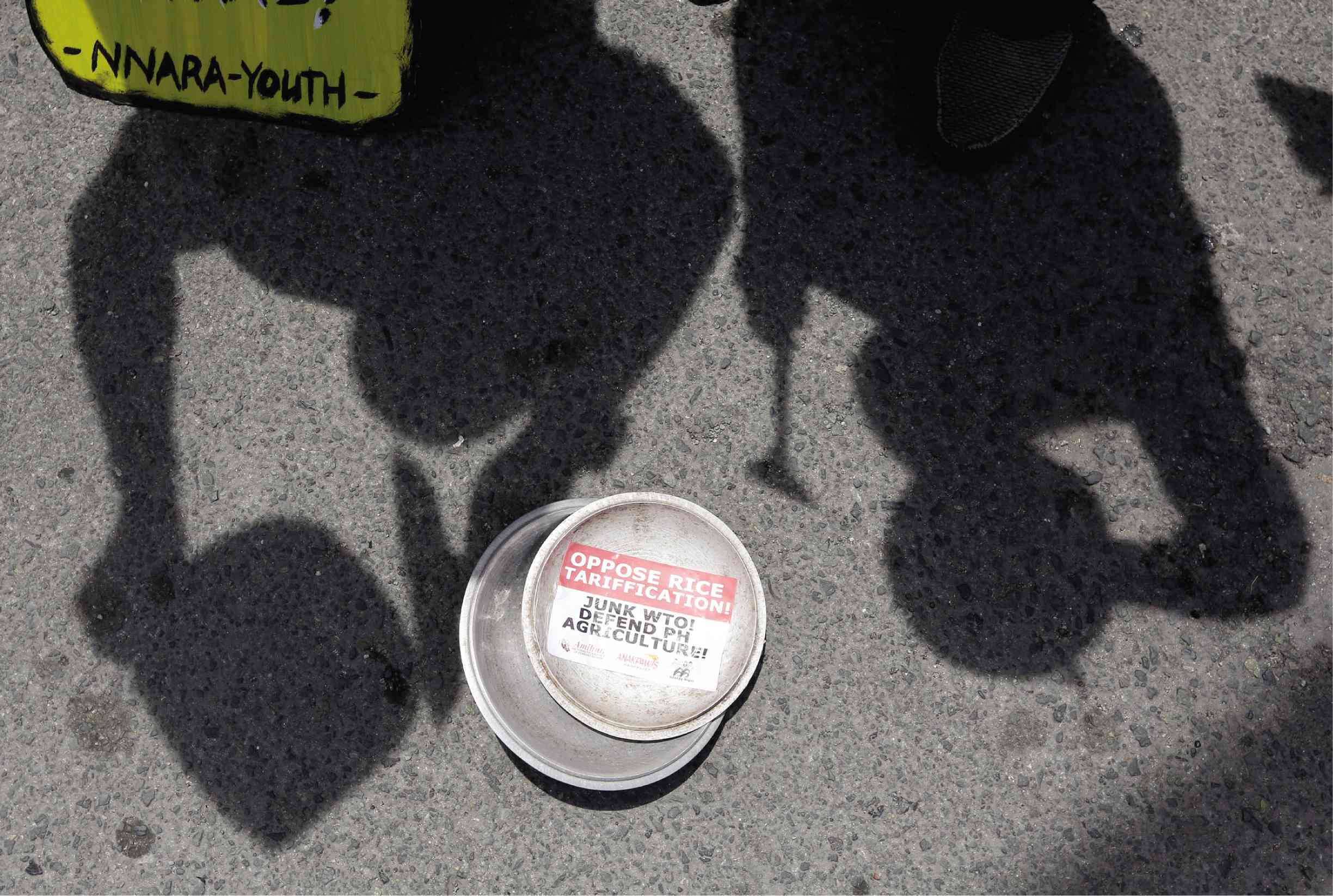Palace told: Don’t be fooled by low world oil prices

GUT ISSUEFarmers rally near Malacañang Palace in September to protest measures being taken to fight inflation, but which they said would hurt local farm production. —MARIANNE BERMUDEZ
Senators cautioned the country’s economic managers against hastily proceeding with the second round of fuel tax increases under the controversial Tax Reform for Acceleration and Inclusion (TRAIN) Act in 2019 amid a slowdown in global petroleum prices.
Sen. Juan Edgardo Angara said the economic team must first ensure that inflation was already under control by the time the impact of the tax increases was felt and that indigent families had already been given subsidies.
The Senate ways and means panel chair acknowledged that international prices of petroleum had been declining, resulting in seven consecutive weeks of price rollbacks with pump prices of gasoline and diesel falling by P9.85 per liter and P8.40 per liter.
No impact
“However, these oil price reductions have to be felt by Filipinos,” Angara said in a statement.
Article continues after this advertisementAngara said it was not yet clear if mitigating measures provided for by the TRAIN law had already been in place.
Article continues after this advertisementOn Thursday, Finance Secretary Carlos Dominguez III told a press conference that the economic team had decided to proceed with the second tranche of fuel tax increases amid the global decline in petroleum costs.
The TRAIN law charged a tax of P2.50 per liter on diesel and bunker fuel this year. This would go up to P4.50 in 2019 and P6 in 2020.
Tax on gasoline would increase to P9 per liter next year and P10 in 2020. TRAIN charged a fuel tax of P4.35 to P7 per liter this year.
Social costs
Malacañang, however, said it would not act irresponsibly on the TRAIN taxes.
It said President Duterte was considering the “social costs” of proceeding with the new fuel tax rates.
But Mr. Duterte, a Palace statement said, was still undecided on the recommendation of his economic team to proceed with the fuel tax increase.